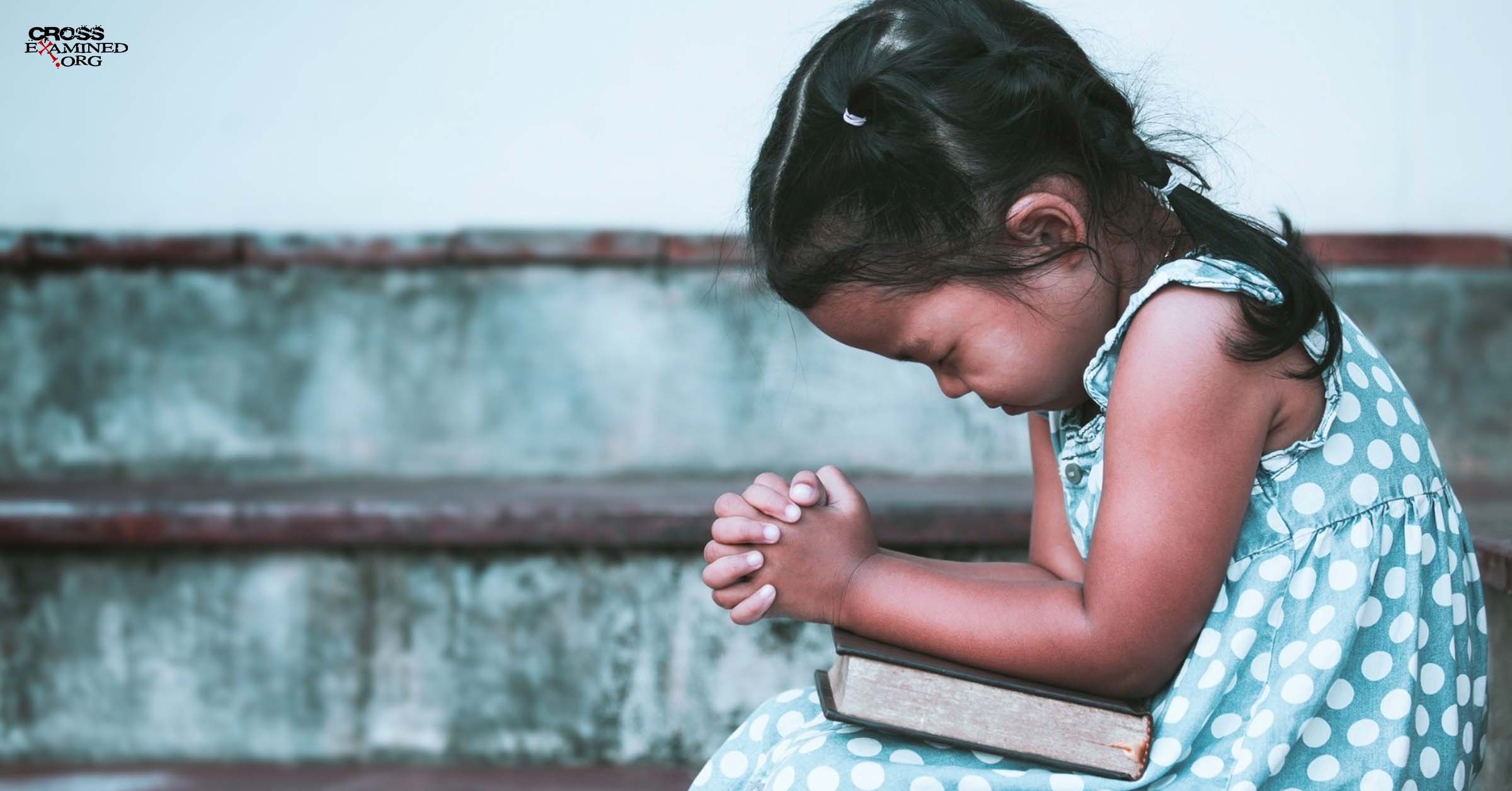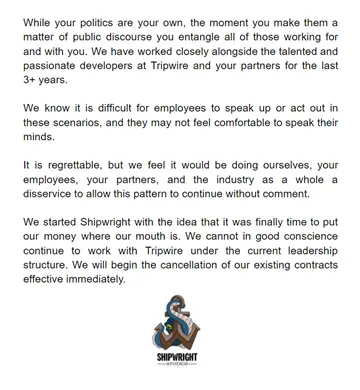By Natasha Crain
This is going to be a very long post, so I’ll cut to the chase:
My husband and I decided back in January that we were going to begin homeschooling our twins for middle school this fall…weeks before we had any idea that the coronavirus existed and that it would lead to everyone schooling at home this spring!
I guess we were unintentionally ahead of the “curve” on this. (Get it? Curve? Coronavirus? Hello?)
This decision was the product of a long period of consideration, during which I did a ton of research, thinking, and learning about educational choices. I came to the conclusion that far more Christian parents should consider homeschooling if they would be able to do it.
Note that I said consider. This is not a black and white subject, and there are many, many family-specific factors involved in an educational choice. I do not think homeschooling is the best for every family. I also realize many parents are not in a position to do it due to health, finances, or other issues. But if it’s at least a possibility, I think every Christian parent should give thought to it.
With the pandemic suddenly sending your kids home, there’s no time like the present to spend time thinking about your educational choices before the fall. Many families will decide to continue homeschooling, and if it’s a possibility for you, I hope this post will provide helpful points to ponder. (If you’re not interested in my personal decision, just skip the first two sections.)
My Family’s Educational Backstory
When it was time for my twins to attend preschool, I spent many hours researching all the programs in the area to find the one I thought sounded “best” based on a host of factors I had researched. It turned out to be a fine little program, but by the end of the year, I felt like there was so much more I wanted them to learn before they went to Kindergarten. I decided to homeschool them for pre-K in order to give them a better academic boost.
For a year, we had a wonderful time of flexible days filled with fun learning experiences and rapid learning. We finished Kindergarten, first grade, and second-grade reading curricula in just a few months—while schooling very minimally each day and leaving much more time for play than in traditional school.
I loved it.
They loved it.
Yet, it never occurred to me to consider homeschooling for their “real” learning years (I saw pre-K as totally different since it was optional). After all, traditional school was what I believed to be “normal.” It was what I knew. It was what I experienced growing up. Most importantly, it was what I expected their lives to look like.
We enrolled the twins in a local private Christian school that was warm and inviting, known for solid academics, and taught from a distinctly Christian worldview. They have now attended that school for six years, and we have genuinely cherished our experience there.
At the same time, as they entered 5th grade this year, I was struck by the realization that they would be starting middle school next year—and this milestone made me really reflect on our educational choices to date and for the future.
Looking back on their elementary years, which are quickly coming to a close, I felt a certain sadness. At first, I thought those feelings were the normal feelings of a mom seeing her kids close a sweet chapter in their lives.
But the more I thought about it, the more I realized that I lamented a certain loss of time with them.
Every day, my kids have spent 6+ hours at school, where someone else was getting to see them bloom in their understanding of the world and who they were becoming as people. Sure, I had them in the morning briefly and then from 3 PM until bedtime (8:30 PM), but that amounted to about half of their weekday lives being spent somewhere else. Once they started sports, we were driving around in the evenings to baseball and soccer fields, and we had even less time together. I’m an extremely intentional parent, and I’ve always been cognizant of making the most of our togetherness, but when the opportunities for togetherness became the nooks and crannies of the average day rather than the focus, something in my thinking began to shift.
More specifically, I felt regret that I hadn’t given more consideration to homeschooling from the beginning.
Note that I didn’t say I regretted not homeschooling. There have been many wonderful things about my kids’ educational experience at their private school—some of which would not have been replicated if I had homeschooled. But I wondered if I would have chosen a different path had I not so simply seen traditional school as the default option when there wasn’t some kind of special reason to do something else.
This realization made me decide that I would give serious thought to both continued private school and homeschooling as my twins approached a natural transition point with middle school—I didn’t want the same kind of regret in 3 years. And after months of very deep consideration, I decided in January that I would become a homeschooler this fall.
Be Mindful of What You Default To
Perhaps my most important take away from months of research, talking with other parents, and thinking about educational choices is that many Christian parents—myself included until now—don’t give enough consideration to the decision of public school vs. private school vs. homeschool. We tend to have our “default” path in mind and go with it. But there are a lot of reasons why our default idea may not be what’s best for our kids.
For me personally, some of the top reasons I’m choosing homeschool over private Christian school (aside from regaining precious time with my kids) include:
- I want to optimize my kids’ academic pace: One of my twins longs to move faster in school and is continually bored by the pace. The other gets things very quickly when I explain it but gets distracted easily in the classroom setting. I am confident both of them will flourish when I set the pace for their individual needs.
- I want to pick the curricula best for my kids’ learning: There are SO MANY curriculum options for homeschoolers. It’s overwhelming, but at the same time, it’s a beautiful thing to have this kind of freedom to customize your child’s learning experience. Additionally, you can choose curricula produced from a Christian worldview where desired.
- I want my son to regain a love of learning: My son, frankly, has come to hate school. At the same time, he loves to learn at home when it’s something he cares about. This is very common with boys, especially, from what I’ve read. With homeschool, we can tailor his projects to areas of his passion so he can love learning again (an outcome that’s hugely important to me) without the “baggage” of what he hated about school.
- I want to reclaim my kids’ free time: Homeschooling takes less time than traditional schooling because so many of the classroom inefficiencies are removed (in middle school, that’s often 2+ hours per day less than in traditional school). If you reclaim 2 hours per day for your child to enjoy play and pursuits of passion, that’s 10 hours per week and 520 hours per year! That’s a meaningful difference in a child’s life.
- I want to pour into my kids spiritually throughout the school day: With homeschool, you can easily integrate a Christian worldview throughout all of your child’s subjects, and at a far deeper level than happens in Christian schools. I’ve created my own subject that my twins and I have named BLAW: Bible, Logic, Apologetics, and Worldview. Each day we’ll focus on one letter from the acronym. (I’m super excited to use Talking with Your Kids about Jesus for our first apologetics curriculum!) Yes, our family has had these conversations for years before our homeschool decision. But the opportunity to make this part of their whole education delights me.
There are many other benefits of homeschooling that I’m not listing here. These are simply the ones that have driven my own decision. But it’s not just the benefits of homeschooling that lead me to say other Christian parents should at least give it great thought. It’s also concerns around both public and private schools. The following are four of the most significant ones I see for each.
4 Considerations for Public Schools Families
- Living in a “great school district” means little.
This is perhaps the most common reason I’ve seen Christian parents give for keeping kids in public school. I’ve heard it from friends who have left our private school (we live in one of those “great” school districts), and I’ve seen it in many online conversations between parents. But here’s the question we need to ask: What, exactly, makes a public school district “great”? And are those factors the ones that should drive our educational choices?
For most parents, the “great school district” factor means that there are strong academics, typically as measured by test scores, as well as abundant additional offerings (music, art, etc.). But this doesn’t take into account the daily impact of a secular curriculum.
Make no mistake: Curriculum is rarely worldview neutral.
Chances are, you’ll find the math curriculum to not have overtones of any particular worldview (though I’ve seen examples where a math book has questionable word problems).
But history? Here in California, the history books are literally being rewritten to frame the past in terms of the progressive agenda. This is happening across the country as well. Your child’s whole view of history will look different than what you might expect. Here’s a picture from a 1st grade history book in California. [Of course, there is no critical thinking about the definition of rights, where rights ultimately would come from, why we should celebrate these rights but not the rights of people to marry multiple partners, etc. It’s all just assumed.]
Science? The naturalistic assumptions of an undirected, purposeless universe flow through to every science subject (Earth science, astronomy, life sciences, and physical sciences).
Literature? Most schools are replacing the classics with reading material aimed at indoctrinating kids in a progressive agenda. The recommended reading lists are often filled with books you would never choose for your own kids if you had the opportunity to read them—profanity, adult themes, and progressive views are commonplace. Yes, you could see that as a teaching opportunity to some degree, but that requires you to read everything your kids read and set aside the time to have those conversations consistently. Most parents I know don’t do that. And if you don’t, your child will just hear whatever the teacher and other students say.
Health? I’ll talk about this in my next point.
I could write a whole book on all the ways the secular curriculum teaches a child every day to see the universe differently than you do as a Christian family. These are just a few quick points. If your child remains in public school, it is crucial to be HIGHLY involved in reading what your kids read so you can proactively have conversations about a Christian worldview relative to what they are learning.
- The problems are not just with sex ed, and therefore, you can’t just opt-out of subjects you don’t want your kids to hear about.
It’s a giant misconception that the only thing Christian parents really need to battle in a public school is the sex-ed program, as should be clear from my prior point. But let’s talk about the sex stuff specifically. Many parents think they can just opt out of the graphic sexual education happening at younger and younger ages in schools, and their kids won’t be exposed to it. While there may be parts you can opt-out of, schools have strategically moved much content into the “health” subject, which is required. It’s the ultimate switcheroo! If schools can’t force all they want into the optional subject, they’ll just move it into a related required one. And what they are teaching at each age is frankly shocking.
One parent shared the following in a group of concerned families I’m part of online (edited for typos):
My daughter is in 7th grade and she is attending a health class which is one of required classes at school. I expected that she could learn basic reproductive body system, symptoms, signs of adolescent, and important health issues thru the health class. However, I was so shocked after listening to my daughter regarding the health class. The health class includes sex education and several guest speakers were invited and teaching the students. The guest speakers are still visiting the health class. My daughter asked me, “Mom, what is oral sex?” I got shocked…the guest speaker explained that oral sex is mouth to penis, mouth to vagina, but my daughter could not imagine or understand why the words “mouth” and “penis” are connected. And, the guest speaker brought some strange stuff. It looks like rubber latex, and then the speaker explained that sex partners put the latex into their private parts and then they can kiss or lick it…and the latex has flavor and scent to make their sex more excited. One of male students asked the speaker, “If I am allergic to the flavor, what can I do?” The guest speaker replied, “You can get other flavors, such as at Target. There are many different kinds flavors there.
The guest speaker went on to say that there is no age limit to get an abortion, so if any students want one, they can get a pill to do it without a parent’s consent.
Again, there would be NO WAY to opt-out of this. The parents weren’t even informed in advance. Similar stories happen every day throughout the US.
- Making educational choices based on experiences with individual teachers or schools is not a good long term strategy.
When I’ve had conversations with people about the impact of the curriculum in public schools, one common reply is that they are lucky because the teachers at their school are Christians, or that their teachers would never teach this stuff, or that their school hasn’t gone off the deep end. This is not a good reason to stay where you are. Teachers and administrators turn over all the time, and you could easily end up with someone who won’t be the buffer you hoped would be there. Additionally, a Christian teacher teaching a secular curriculum with the types of issues I already outlined can only do so much to compensate.
- Chances are, your kids are not able to be the “salt and light” you would hope them to be.
Many families feel that if all Christians pull out of public schools, there won’t be anyone left to be “salt and light.” Given the breadth and depth of challenges, however, I personally think it’s unreasonable to think that any kid can publicly counter the secular thinking pervasive across subjects. Sure, they can invite friends to church, share the Gospel, and behave in a way that glorifies God, …and those things are all very important. But every family must weigh the reality and extent of those opportunities happening with the reality of how the curricula and peer influences are affecting them.
4 Considerations for Private Christian School Families
Given all that I just said about public school issues for Christians, it would be tempting to suggest that everyone should run to a Christian school if they can afford it. But I wouldn’t necessarily say that. Here are four things to consider.
- Christian schools vary greatly in quality, both academically and spiritually.
Just as two people who both call themselves Christians can have very different understandings of what that means, two schools that call themselves Christian can as well. There are Christian schools that are weak academically but strong in teaching the Christian worldview. There are others that are strong academically but could hardly be called Christian. Some are weak in both areas, and some are strong in both areas.
Never pick a Christian school just because it’s an alternative to public school.
It’s critical to really evaluate what the school offers to see if it’s strong both academically and spiritually. If you find a good one that you can afford, you may avoid some of the most serious issues around public schools, and that is absolutely worth doing. (Read on for why I say may avoid.)
- Many Christian schools use a secular curriculum.
In many Christian schools, the “Christian” part reflects the fact that teachers sign a statement of faith, there is a weekly chapel, teachers pray with the kids, and there’s a Bible class. Teachers also work to make “faith connections” to the subjects taught. These are all very wonderful things, and I’ve appreciated every aspect of them while having our kids at a Christian school. But parents should be aware of the curriculum choices a Christian school makes, especially for middle and high school. In many cases, they use secular textbooks and expect teachers to compensate in the class by talking about the subject from a Christian perspective. Many teachers are simply not equipped themselves with this kind of understanding in order to fully counter what secular curricula teaches. You end up with a tug of war between worldviews of the text and teacher. This could be beneficial to the student if done very well, but that completely depends on the teacher’s knowledge and motivation.
If you’re considering a Christian school, ask many questions about curriculum choices at the various grade levels.
- Teachers vary greatly in how they incorporate faith into the classroom.
We’ve had teachers who prayed multiple times with the kids throughout the day and teachers who didn’t at all. We’ve had teachers who naturally brought up great connections to the Bible across subjects and some who only talked about faith during Bible time. We’ve had teachers who explained the historical and literary context of monthly Bible verses and some who just asked the kids to come up with a skit for whatever they thought it meant. You get the idea. In most Christian schools, there is little standardization across the classrooms because the teachers all come from such different places in their own spiritual life (even if they’re all Christians, they’ve been Christians for different amounts of time and are at different places in their knowledge and walk).
In short, if you send your kids to a Christian school, don’t think for a minute that that education will replace what you should be doing for discipleship. It won’t, and it shouldn’t.
- Kids at Christian schools are often not that different from kids at public schools.
Sometimes parents think that they’ll get rid of the worst peer influences from public school if they go private, and sometimes that is correct. But it’s important to know that people send their kids to a Christian school for all kinds of reasons, and it’s often not because they’re passionate about their kids having a Christian worldview. Sometimes they just want a smaller class size. Sometimes their kids had trouble socially in one school and needed an alternative. Sometimes it’s just the closest school. The kids in Christian schools won’t all be committed Christians because the families won’t all be. But even if the families were, kids will be kids. There will be plenty of mean kids, cliques, kids who watch stuff you wouldn’t allow, and so on. Don’t assume private school is a catch-all solution for negative peer influences.
While I think homeschool is a vastly under-considered choice for Christian parents, there are many families for whom public or Christian school will be the best decision. My purpose here was certainly not to convince everyone to homeschool. But whatever you decide for the fall, be thoughtful about it. Don’t default. Our kids’ education is too important to just do whatever we assumed we always would. The world has changed too much.
Recommended resources related to the topic:
Talking with Your Kids about God: 30 Conversations Every Christian Parent Must Have by Natasha Crain (Book)
Keeping Your Kids on God’s Side: 40 Conversations to Help Them Build a Lasting Faith by Natasha Crain (Book)
Courageous Parenting by Jack and Deb Graham (Book)
Proverbs: Making Your Paths Straight Complete 9-part Series by Frank Turek DVD and Download
Forensic Faith for Kids by J. Warner Wallace and Susie Wallace (Book)
God’s Crime Scene for Kids by J. Warner Wallace and Susie Wallace (Book)
Natasha Crain is a blogger, author, and national speaker who is passionate about equipping Christian parents to raise their kids with an understanding of how to make a case for and defend their faith in an increasingly secular world. She is the author of two apologetics books for parents: Talking with Your Kids about God (2017) and Keeping Your Kids on God’s Side (2016). Natasha has an MBA in marketing and statistics from UCLA and a certificate in Christian apologetics from Biola University. A former marketing executive and adjunct professor, she lives in Southern California with her husband and three children.
Original Blog Source: https://bit.ly/2SO0iwa












